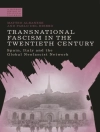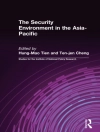More than 30 years after the collapse of the German Democratic Republic, its cinema continues to attract scholarly attention. Documenting Socialism moves beyond the traditionally analyzed feature film production and places East Germany’s documentary cinema at the center of history behind the Iron Curtain. Covering questions of gender, race and sexuality and the complexities of diversity under the political and cultural environments of socialism, the specialist contributions in this volume cohere into an introductory milestone on documentary film production in the GDR.
Table des matières
List of Illustrations
Acknowledgements
Introduction: Documenting Socialism
Seán Allan and Sebastian Heiduschke
Part I: Studios, Systems and Networks
Chapter 1. ‘Mountains of Material’: Gerhard Scheumann and the Cinéma Vérité Debate in the GDR
Matthew Bauman
Chapter 2. The DEFA ‘Foreign Ministry Films’: Presenting the German Democratic Republic to the World, 1962-1990
Thomas Maulucci
Chapter 3. Diary of the Ordinary Reinventing the Newsreel: DEFA Kinobox, 1981–1990
Reinhild Steingröver
Part II: Documentary Auteurs
Chapter 4. The Archives Testify: The Compilation Films of Annelie and Andrew Thorndike
Helen Hughes
Chapter 5. ‘How Far Can You Go?’ Everyday Lives in the Films of Kurt Tetzlaff
Nick Hodgin
Chapter 6. Peter Voigt: Socialist Documentary and the Legacy of Brecht
Seán Allan
Chapter 7. Critical Truths: Documenting Disillusionment in the Films of Helke Misselwitz, Petra Tschörtner, and Angelika Andrees
Jennifer L. Creech
Part III: Transnational Documentary
Chapter 8. East German Documentary Films by and about Sorbs
Andy Räder
Chapter 9. ‘Are These Pictures a Deception?’ Socialist Self-Reflexivity in the Cambodia Trilogy of Studio H&S
Martin Brady
Chapter 10. Polycentric Images of Africa in East German Documentary Film
Sebastian Heiduschke
Chapter 11. East Germany’s Anti-Racist Politics and Black Abjection in Documentary Film
Priscilla Layne
Part IV: Documenting Alterity
Chapter 12. Ein Tagebuch für Anne Frank [A Diary for Anne Frank, 1958]: The GDR’s answer to Alain Resnais’s Nuit et Brouillard [Night and Fog, 1956]
Elizabeth M. Ward
Chapter 13. A Woman’s Work? Women Soldiers, Masculinities and Binary Panic in Documentaries of the East German Army
Tom Smith
Chapter 14. The Queer Cipher in East German Documentary: In Sachen H. und acht anderer [In the Matter of H. and Eight Others] and Queer Activist Super 8 Films
Kyle Frackman
Part V: The Presence of the Past. Reconstructing the Socialist Imaginary
Chapter 15. The Socialist City and Utopian Temporality in Halle-Neustadt Documentaries
Stephan Ehrig
Chapter 16. The Rubble of History. Searching for the German Past in a European Present in Andreas Voigt’s Ostpreußenland [Tales of East Prussia, 1995] and Volker Koepp’s Kalte Heimat [Cold Homeland, 1995]
Jason Doerre
Filmography
Index
A propos de l’auteur
Sebastian Heiduschke is Professor of World Languages and Cultures at Oregon State University. His film publications include the books East German Cinema: DEFA and Film History (Springer, 2013 in English, 2019 in a Japanese edition), Re-imagining DEFA: East German Cinema in its National and Transnational Contexts (co-edited with Seán Allan, Berghahn Books, 2016), as well as essays in Camera Obscura, Feminist German Studies, German Studies Review, Monatshefte, and various edited collections.












